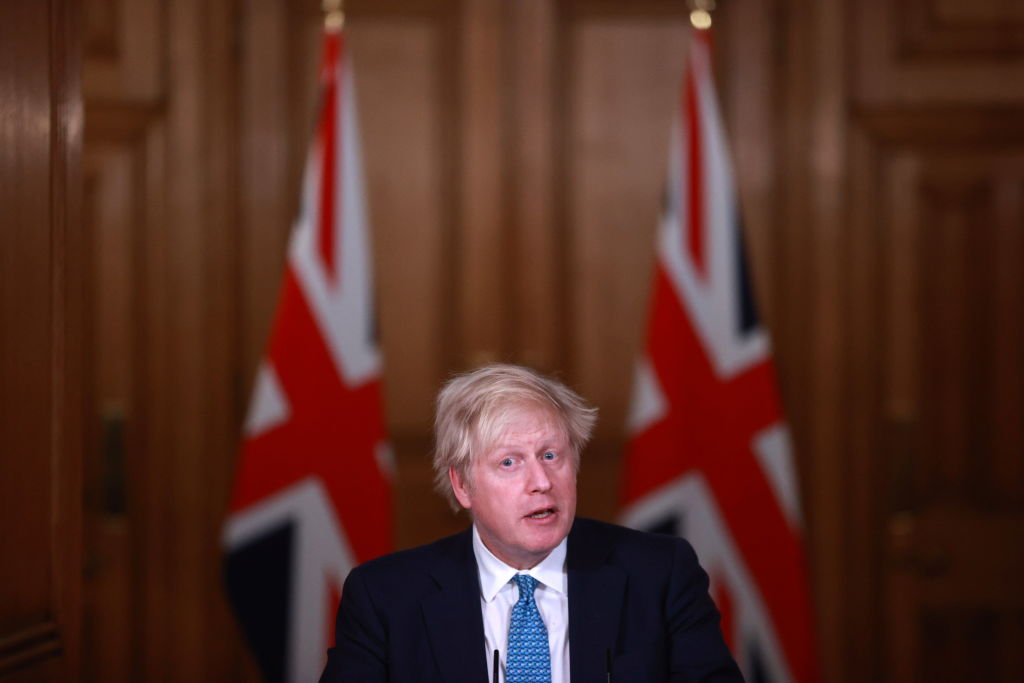Boris Johnson this evening tried to give a little more background to why he had called England’s latest lockdown – and why he had confidence that this really was the darkness before the dawn. The Prime Minister told the Downing Street coronavirus briefing (yes, we are back in that sort of lockdown) that more than 1 million people in England are now infected with Covid – around 2 per cent of the population, according to the ONS – but that as of today, the same number of people in England, and a total of 1.3 million people across the UK, have received the vaccine.
He had to explain why he had changed his tune on schools so rapidly, going from insisting that most schools should return to cancelling face-to-face teaching within 36 hours. His answer was that he had tried to do everything he could to keep schools open because of the disadvantages that many pupils face when trying to learn remotely but that ‘alas’ this wasn’t possible.
He did use that classic Johnson aside of ‘alas’ a fair bit, but as with last night’s televised address to the nation, the Prime Minister was making a visible effort not to be too optimistic, suggesting only that things really would be ‘very different by the spring’. He repeatedly said this would be a ‘tough’ period, and spoke very much in conditional terms when talking about the prospect of restrictions easing. He said that if the vaccine programme worked according to plan, if people followed the guidance, and if there was no new mutation, then there was the ‘prospect’ of relaxing ‘some’ of the measures.
Today’s press conference was as much about the race to get as many people vaccinated as possible as it was about the justifications for the lockdown. This is not only because Johnson clearly hopes that regular discussion of the progress of the vaccination programme will help the general public stay upbeat through this latest lockdown. It is also because this is where the focus of Johnson’s internal critics has moved. The Covid Recovery Group of MPs have largely stopped trying to resist the latest restrictions and are now pressuring the government to get vaccinations moving at a sufficient pace that the strictest of measures won’t be necessary for too long.
To that end, Johnson said the government will start providing daily progress updates on immunisations from Monday. Chief medical officer Professor Chris Whitty also told the briefing that the vaccine rollout timetable of getting 13 million people in the top priority categories vaccinated by February was ‘realistic but not easy’.
Beyond whether the NHS does manage to stick to that timetable is the question of how the restrictions will start to ease – and when. Whitty suggested that some measures would still be in place next winter. These are likely to be more general infection control requirements such as mask-wearing in public spaces, rather than the mass closures we are currently subject to. But which rules are lifted and when will be the big debate in politics over the months to come.







Comments